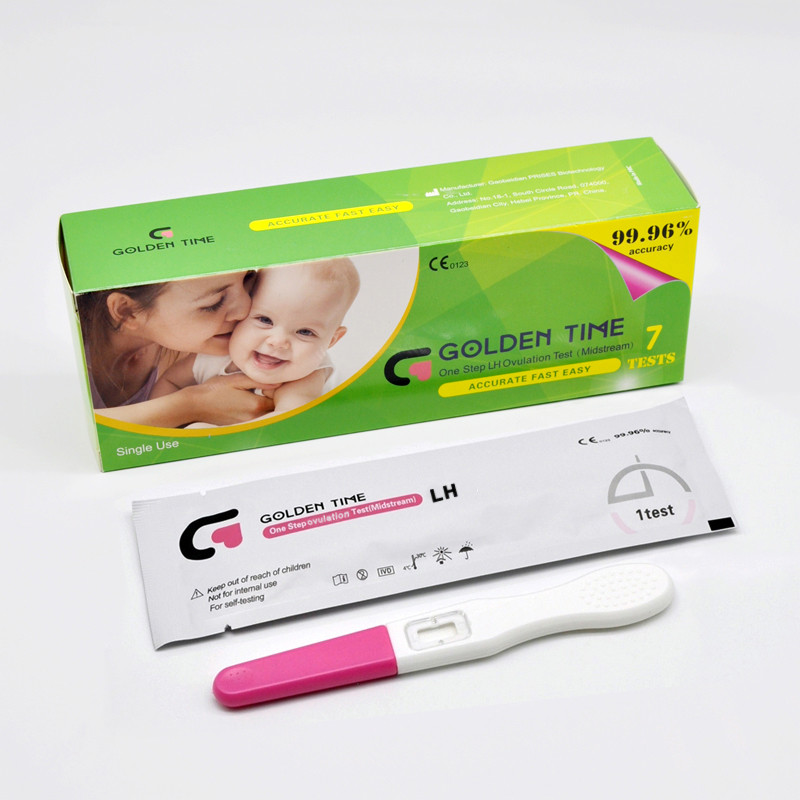12 月 . 03, 2024 18:51 Back to list
best stool occult blood test
Understanding the Best Stool Occult Blood Test A Critical Tool in Colorectal Health
Colorectal cancer is one of the leading causes of cancer-related deaths worldwide, and early detection is key to increasing survival rates. One of the most effective non-invasive methods for screening this disease is the stool occult blood test (FOBT). Understanding what this test entails, how it works, and its significance in preventative health can empower individuals to take charge of their health.
What is the Stool Occult Blood Test?
The stool occult blood test is designed to detect hidden (occult) blood in the stool. The presence of blood can indicate several issues, including polyps, hemorrhoids, or cancer. The test is able to identify lower gastrointestinal bleeding that may not be visible to the naked eye. It plays a crucial role in screening for colorectal cancer, particularly among individuals aged 50 and older, or those with a family history of colorectal problems.
Types of Stool Occult Blood Tests
There are primarily two types of stool occult blood tests guaiac-based tests (gFOBT) and fecal immunochemical tests (FIT)
.1. Guaiac-based Tests (gFOBT) These tests use a chemical to detect the presence of hemoglobin in the stool. The gFOBT is sensitive to blood in the stool, which can stem from a variety of conditions. However, it can also yield false positives due to dietary factors, such as red meat consumption.
2. Fecal Immunochemical Tests (FIT) FIT tests specifically target human hemoglobin and are generally considered more accurate than gFOBTs. They are less likely to be affected by diet and usually require a simpler collection process. Due to their specificity and ease of use, FIT tests have become increasingly popular for routine screening.
best stool occult blood test

How Does the Test Work?
The process for performing a stool occult blood test is user-friendly. Individuals are typically provided with a test kit that includes a collection device and instructions. After collecting a sample, it is sent to a laboratory for analysis. Results are typically returned within a week, allowing healthcare providers to discuss the findings promptly.
If the test indicates the presence of blood, further investigation is warranted. This usually includes a colonoscopy, a procedure that allows for direct visualization of the colon and rectum, and the potential for biopsy.
Who Should Get Tested?
The American Cancer Society recommends that individuals begin regular screening for colorectal cancer at age 45. Those with a family history of the disease, prior colorectal polyps, or certain genetic syndromes may need to start screening earlier. The frequency of testing will depend on the type of test used and individual risk factors. Generally, an annual FIT is suggested, while gFOBT may require testing in a similar timeframe.
Importance of the Stool Occult Blood Test
The stool occult blood test is a vital component of preventive healthcare. It empowers patients with information about their colorectal health and can lead to early detection of serious conditions. The simplicity of the test makes it accessible, and its efficacy in reducing mortality rates associated with colorectal cancer cannot be overstated.
In conclusion, the best stool occult blood test is an essential tool for early detection of colorectal issues, including cancer. By promoting awareness and screening, we can save lives through early intervention. Those eligible should not hesitate to discuss screening options with their healthcare provider, understanding that taking this step is a proactive move towards maintaining optimal health. Regular screening can make a significant difference in outcomes and is a responsibility that everyone should take seriously.
-
Early Pregnancy Test Kits Accurate & Fast Results Bulk Order Now
NewsMay.30,2025
-
Buy OPK Tests for Pregnancy Detection Bulk Supplier Discounts
NewsMay.30,2025
-
Buy OPK Tests for Pregnancy Detection Bulk Supplier Discounts
NewsMay.30,2025
-
Best At Home H Pylori Test Kits Accurate, Fast & FDA-Certified
NewsMay.29,2025
-
Accurate Syphilis Test Kits Trusted Suppliers & Manufacturers
NewsMay.29,2025
-
Wholesale Stool Occult Blood Test Kits Bulk Supplier Pricing
NewsMay.29,2025

